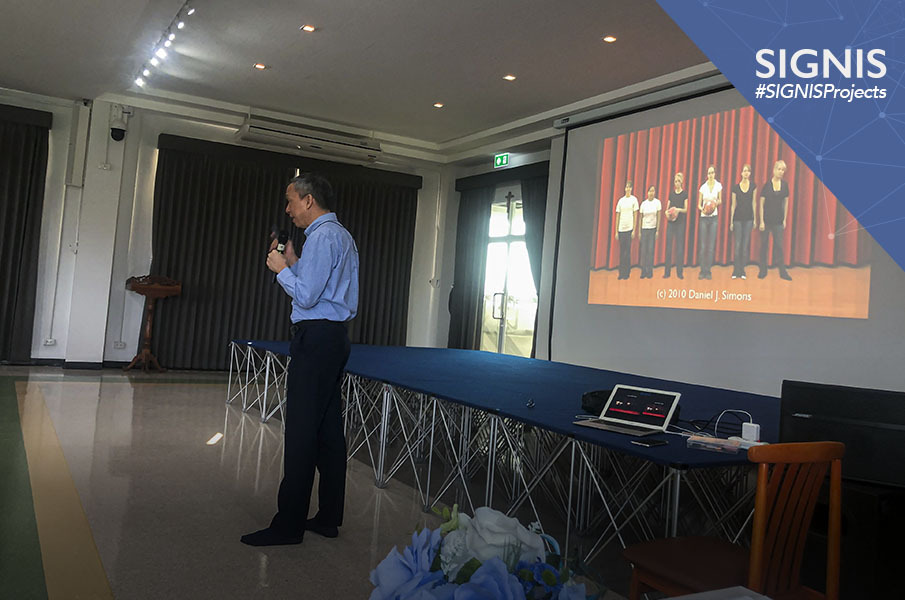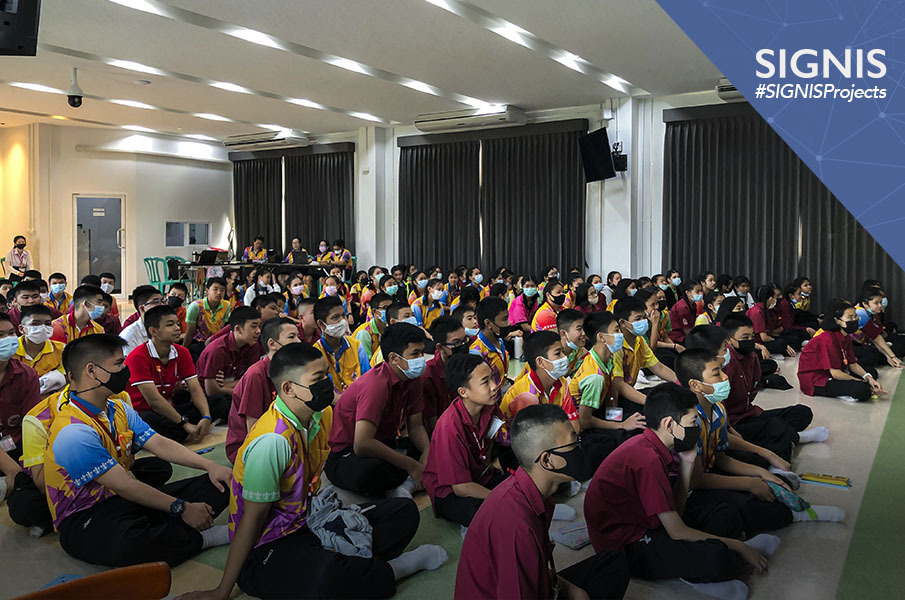Every year, SIGNIS screens project applications on media training, equipment, and production for subsidy from the Pontifical Society of the Propagation of the Faith (PSPF). In 2020, we launched the signisprojectapplication.net online portal, successfully switching from a paper-based to a fully digital application process and making it easier for applicants from all over the world to submit their projects.
That same year, the Diocese of Nakhon Sawan in Thailand sent us a project proposal for a six-day training programme on social media usage targeted at young people. In this interview, Fr. Thomas Thossapon Narinruk tells us more about how the programme teaches the youth media literacy skills and help them gain knowledge on the dangers of social media and misinformation.
Could you tell us more about the human impact the project will have on your community?
Fr. Narinruk: The project raises the awareness of young people by showing them how spreading fake news can harm others. Most of the time, young people are only interested in using social media for entertainment, consuming content, and bullying. Social media is part of their reality and make them believe that they enjoy freedom, but only God can provide true freedom. The project will bring them to the reality that the Catholic Church consistently affirms the Good News in every circumstance. The Church can always provide guidance in their lives.
How do you see the situation in your community once the project is implemented?
Schools participating in the training programme will be able to set up regulations for students on how to use social media in correct ways, such as choosing the right channel, managing the time spent on social media, setting priorities for daily activities, etc. These regulations can prevent and protect students from the risk of being trapped by social media. Young people who participate in the activities of this project gain knowledge and understanding of the reality of social media. As Catholics, having social media expertise or a good understanding of social media and its effects has made a difference in how we communicate with the young generation. They also come to realise our goals, hopes and good wishes for them. The project has reduced the burden on schools, executives, teachers and parents.
What can you tell us about the community where the project is taking place?
The community is located in the Diocese of Nakhon Sawan, which covers the upper central part of Thailand. The project will run activities for 2,500 students from five Catholic schools in five provinces: Nakon Sawan, Petchabun, Phitsanulok, Lopburi, and Uttaradit. There is a diversity of students and teachers from different beliefs, culture, language, and social classes. From the pastoral point of view, we need to create a learning space for school executives, parents, teachers, students, and other personnel to know and understand the Church’s determination and well-intentioned response to the risk of using social media, even if it is a bit too late.
What are your main objectives with this project?
We intend to solve the problems we are facing. We see that young people are stuck to social media, especially when it comes to games, entertainment, beauty content, and bullying, which may hurt the bullied person. We also see that they lack some ethics regarding how they ought to live their lives. The Thai education system seems to lack the process of instilling actual core values of life in young people, and Catholic schools must take over this task.
Is there an anecdote that you recall from these last months?
We received a very warm welcome and friendly collaboration from schools’ executives and teachers in joining us to organise the activities since they are experiencing and facing these problems but do not really know what to do and how to deal with them. One day, a male student of grade 5 has come up to Fr. Ongart Kaeser, the key organiser and resource person, and told him: “Father, now I know so from now on I will change myself. I will only play the game within a limited period of each day. I will take care of my health so that I can get good grades in my studies.”
Why do you think PSPF should continue to support these types of projects?
POF is the beginning of the Church’s journey. The project allows us to manifest what ordinary people need right now and provide knowledge and up-to-date information on social media. This is also important as social media has been a great tool during the Covid-19 pandemic. While our face-to-face meetings were limited, we still had the opportunity to meet online for several reasons: mass, sermon sharing, bible sharing, and reflection. Social media can also be used for sharing words of encouragement, motivation, and inspiration. And this project is also an opportunity for poor people to gain new valuable knowledge, learn skills to run businesses, and gain income for their survival.



